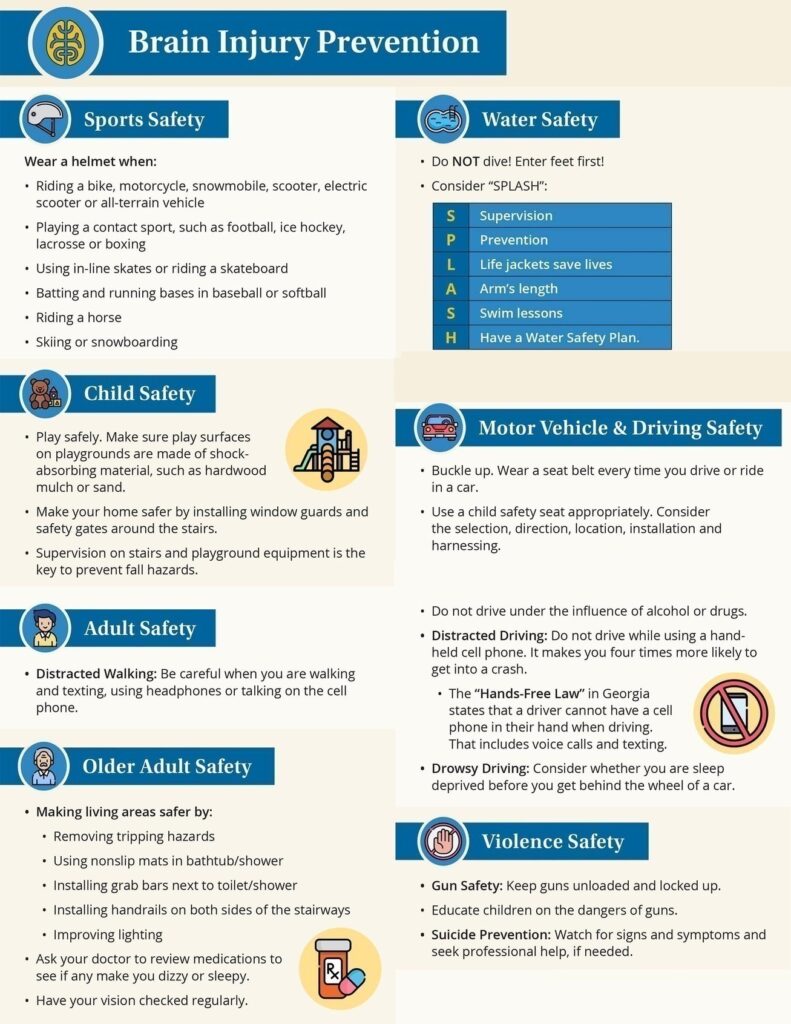Brain Damage: Traumatic Brain Injury Causes
A brain injury is any injury to the brain that affects a person physically, emotionally or behaviorally. Brain injuries can happen at birth or may arise later from trauma or an illness. Depending on the cause, a brain injury is called either traumatic or non-traumatic.
Traumatic Brain Injury Causes
Traumatic brain injuries do not always include an open head wound or skull fracture. Loss of consciousness may not occur either. These are the most common causes for a traumatic brain injury (TBI):
- Motor vehicle accidents
- Falls
- Violence or gunshot wound
- Military attack or bomb blast
Non-Traumatic Brain Injury Causes
A non-traumatic brain injury may also be called an acquired brain injury or ABI. This type of brain injury is the result of an illness or condition within the body, and it is not a result of a blow to the head. These are the most common causes of a non-traumatic brain injury:
- Stroke (leading cause)
- Lack of oxygen (hypoxia)
- Tumors
- Other illness such as cancer
- Brain infections or inflammation
- Other infections
Symptoms of a Brain Injury
Signs of brain trauma can vary. You may experience physical symptoms or functional and emotional changes if a traumatic or non-traumatic brain injury has occurred. Typically, brain injury causes:
- Headache
- Difficulty coordinating balance
- Vision problems
- Seizures
- Changes in sensory perception
- Trouble speaking and swallowing
- Personality changes
- Difficulty forming sentences or choosing vocabulary
- Confusion
- Trouble communicating
- Difficulty with reason, focus and logic
- Memory impairments
TBI Precautions: Tips to Protect Your Brain
How to Prevent Head Injuries
Traumatic brain injuries are a serious public health concern in the United States. Symptoms of brain injury can be mild, moderate or severe, depending on the extent of damage. Even a mild injury can impact how the brain works. Reduce your risk of a traumatic brain injury by following these tips:
Wear your seat belt.
Seat belts are an important TBI precaution because they reduce serious injuries and deaths from crashes by about 50 percent.
- Always wear a seat belt each time you drive or ride in a motor vehicle.
- A child should sit in the back seat of the car and be buckled in with a child safety seat, booster seat or seat belt (according to the child’s height, weight and age).
Don’t drive under the influence of drugs or alcohol.
Alcohol and drugs, including prescription medications, can impair a person’s ability to drive. Alcohol-impaired drivers are involved in about one in four crash deaths, resulting in nearly 11,000 deaths in 2018.
Don’t text or use a cell phone while driving.
Cell phones are the number one source of driver distraction. Using a mobile device while driving is similar to having a blood alcohol level at the legal limit of 0.08 , according to researchers at the University of Utah. The NHTSA reports that drivers who talk on cell phones or text while driving are four times as likely to get into a car crash serious enough to injure themselves.
Wear a helmet.
Adults and children should wear a helmet and protective gear when participating in sports and recreational activities. Always wear a helmet when:
- Riding a bike, motorcycle or skateboard
- Skiing, snowboarding or using inline skates
- Playing a contact sport, such as football, ice hockey or boxing
- Playing baseball or softball
Prevent falls at home.
Each year, millions of older adults fall, according to the Centers for Disease Control and Prevention. While one in four people fall, fewer than half tell their doctor. Falls are the most common causes of traumatic brain injury, but they can be prevented in older adults by doing the following:
- Installing handrails in bathrooms and on both sides of a stairway
- Removing tripping hazards, such as throw rugs and clutter
- Improving lighting throughout your home
- Maintaining regular activity for older adults
- Using nonslip mats in the bathtub or shower floor
- Getting regular eye exams


